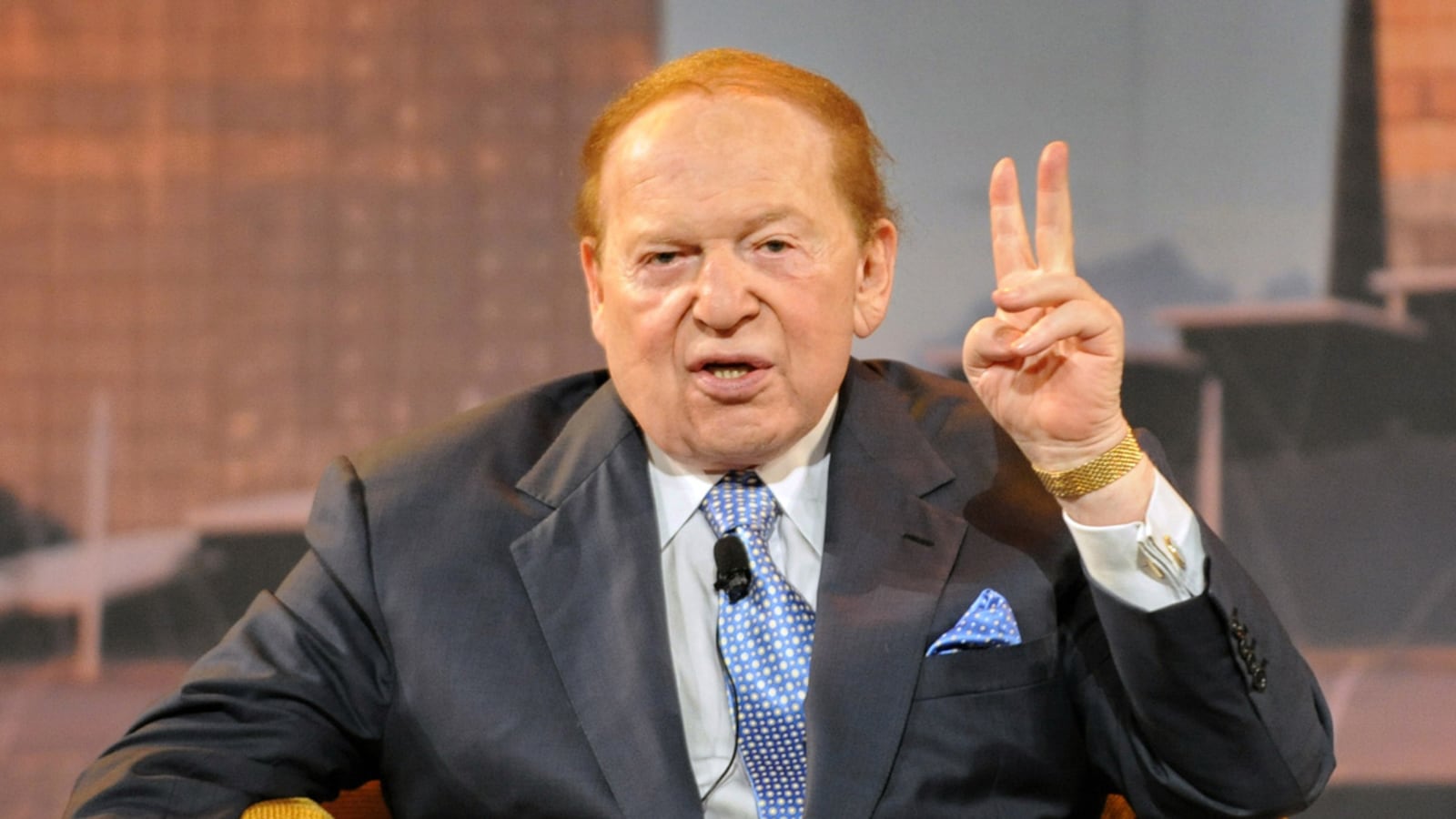Remember when “liberal” was a bad word? In 1992, when Dukakis lost to Bush Sr., it was practically a slur. Today, the Right accuses Democrats of being Socialists, but twenty years ago, what had once been a proud tradition—the political heritage that brought us Social Security, environmental protection, and the Civil Rights Act—had become so spin-doctored that even Democrats ran away from it.
“Zionist” is the same way today. The Left’s vilification of the term is equaled only by the Right’s justification of that vilification. For years, I’ve argued that Zionism needn’t and shouldn’t entail settlements, ‘tough’ policies that make daily Palestinian life miserable, and the current Israeli government’s increasingly racist and xenophobic policies. Only, according to the Right, it does. In Israel, the Israeli far right—brought to power in large part by our own Sheldon Adelson, who has funded Benjamin Netanyahu the same way he is now bankrolling Newt Gingrich—has branded any garden-variety liberal critique of Israel a crime against the state. And, while I’m reminiscing about the 1990s, many of us remember how current Israeli Prime Minister Benjamin Netanyahu spoke at a fiery political rally with banners accusing Yitzhak Rabin of being a traitor.

In other words, there’s a shrinking constituency that still believes Zionism can mean what it used to mean: the ideology that there should be a national home for the Jewish people in its historic homeland. The Left equates that ideology with the Right’s iteration of it, extending this seemingly simple idea to include the construction of settlements, the unequal treatment of non-Jewish citizens of Israel and residents of the West Bank and Gaza, and jingoistic nationalism. These, it seems to me, is what the Left means by “Zionism” and why it equates the term with racism. Zionism as applied by a Right-Far Right nationalist government is just that.
So, can one be a Zionist if no one thinks you are? Is it worth reclaiming a label that has been so tarred by association with right-wing nationalism? I’m not sure. It’s what I believe, and according to the criteria set up by founding fathers of Zionism, I am indeed a Zionist. But I hesitate to claim the label, because I don’t want to be associated with those who wear it proudly. In the United States, they are often American know-nothings, more entranced by Disney Israel (Masada! The Western Wall! The Rapture!) than by the messy, often beautiful, often tragic ironies of the state and its peoples. And in Israel, they are often the worst of flag-waving patriots, ugly, mean, and drunk with their power. Obviously this is not true of all self-proclaimed Zionists here or in Israel. But it is true of most who proclaim it loudly.
By way of analogy, there are many good reasons one might support “states’ rights” in the American context. Federalism as an ideology exists independently of its use to justify slavery in the 19th century or robber-baron capitalism in the 21st. But can you imagine someone joining the Federalist Society solely because she believes in the federal system of government? At the very least, the (contemporary) federalists would be confused. More likely, she would be justifiably accused of supporting their excesses.
Not least by the victims of those excesses, who in the case of Zionism are the Palestinians and those who support them. Given the actions in the name of ‘Zionism’ that have been taken by Israeli nationalists, the label “Zionist” seems almost like hurtful speech. I know what I mean by saying that I am a Zionist, but if a victim of oppression feels more oppressed by my saying so, what is the meaning of adopting such a label? Does my increasingly idiosyncratic definition of the term make sense? And is my fidelity to that term more important than building a bridge with those who have been wounded by it?
I believe in the notion of a Jewish and democratic state, for all the complexity such a juxtaposition entails. I believe that such a state can exist without the oppression of another nation of people, and indeed that it must do so if it is to survive. I support Israel, even when and precisely when I do not support its government’s policies. To me, that makes me a Zionist, even if many people don’t think it does. But I wonder if this is a label worth claiming anymore.






